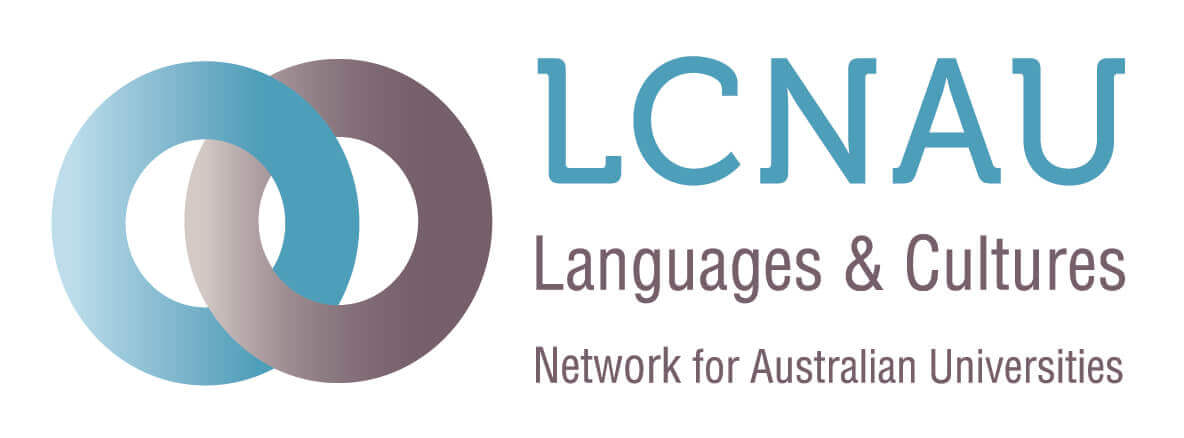Auslan (Australian Sign Language) Cluster
Facilitator: Adam Schembri, La Trobe University
(email: a[.]schembri[at]latrobe[.]edu[.]au)
Auslan (short for Australian Sign Language) is the sign language of the Australian deaf community, historically related to British Sign Language (BSL) and New Zealand Sign Language (NZSL). It is one of Australia’s most widely misunderstood languages – Auslan is a natural language that was not invented by any individual, and many aspects of its vocabulary and grammar are quite distinct from English. The earliest known signing deaf individuals to bring BSL to this country began to arrive as convicts and free settlers from 1819. Since that time, Auslan has developed into a distinct sign language variety that was recognised as a community language by the Australian government in 1984 (Lo Bianco, 1987).
There are relatively few universities in the country that teach Auslan. There is a three-year sequence of undergraduate Auslan subjects currently taught at La Trobe University, offered by the National Institute for Deaf Studies and Sign Language. Macquarie University and RMIT University both offer an Auslan stream as part of the degrees in translation and interpreting. Auslan has also been taught at the University of Newcastle and Griffith University.
This cluster is established to support the teaching of Auslan at university level, and the need for ongoing research on this unique aspect of Australia’s linguistic landscape.
If you are interested in participating in this cluster, or require further information, please contact the facilitator.
Media
Lifeline for sign language course, The Age, 4 November, 2012
Relevant websites
Auslan Signbank (online dictionary of Auslan): www.auslan.org.au
La Trobe University: http://www.latrobe.edu.au/health/about/schools/departments/national-institute-for-deaf-studies-and-sign-language
Macquarie University: http://www.ling.mq.edu.au/postgraduate/coursework/tip/pca.htm
RMIT University: http://www.rmit.edu.au/translatinginterpret/TAFE
Blogs
TAFE turns a blind eye to the deaf http://blogs.crikey.com.au/fullysic/2012/05/26/tafe-turns-a-blind-eye-to-the-deaf/
Strong and proud: The deaf community has no need for self-appointed champions https://theconversation.edu.au/strong-and-proud-deaf-community-has-no-need-for-self-appointed-champions-3875
Links to organisations
Deaf Australia: www.deafau.org.au
Other links of interest
youtube clip: http://www.youtube.com/watch?v=eCXAUATESfE
LANGUAGE AND CULTURE RESEARCH GROUP
Facilitator: Graham Squires, University of Newcastle
The Language and Culture Research Group has been established to facilitate cooperation between LCNAU members working in different disciplines, language areas and universities on an ongoing basis. We hope to create an ongoing discourse amongst researchers in different disciplines and institutions that will foster both collegiality and innovation across the sector.
The activities of the group will include one-day ‘mini-conferences’, which are free to all financial members of LCNAU.
Reports on past mini-conferences
The second mini-conference organized by the Language and Culture Research Group was held at the Defence Force School of Languages in Laverton, Victoria on November 14, 2016. The event was organized by Anna Ivanova, Head of Development DFSL with the assistance of Mojgan Rezai. Many of the papers highlighted the work of the DFSL which is very different to the kind of language teaching and learning that goes on at civilian universities. The papers were all interesting and well presented. The hospitality was also warm and generous so attendees had an informative and enjoyable day. The presentations were as follows:
- Wing Commander Paul Deighton, Commanding Officer DFSL Opening remarks
- Mr Robert Tynem, Army Manager Languages Army Linguists in the ADF: Language training, preparation and employment
- Ms Anna Ivanova, DFSL Head of Development DFSL: language teaching and learning context
- Ms Mandy Wimetal (Tetum Dept), DFSL Military briefing scenarios for language consolidation and reinforcement
- Mrs. Kwishik Ahn (Korean Dept) and Mr. Emil Abdel-Malak (Arabic Dept), DFSL Operational Engagement between LSP and the foundational stream: Striking the right balance
- Mr Julien Leyre, Monash University Designing language learning activities to build self-awareness and resilience in situations of ambiguity
- Ms Novy Arnost (Head of Indo-Malay Wing) and Ms Ratna Setiabudi (Indonesian Dept), DFSL Strategic Engagement course In Country Training
- Dr Graham Squires, University of Newcastle Developing an on line Japanese language program for first year students
- Mr Bede Harradine (Indonesian Dept), DFSL Maintaining content currency in a language course : tips and strategies from a DFSL Strategic Engagement Course
- Scott Grant, Monash University Virtually Enhanced Languages (VEL) project
- Mr Bin Sheik Husain (BL Dept) and Mr Fabrice Pilon (French Dept), DFSL Enhanced LOTE Learning through the use of DFSL Moodle-Based Platform
- Mr Jason Telford (Knowledge Manager), DFSL Consumer virtual reality experiences in support of Language and Cultural Training
- Wing Commander Paul Deighton, CO DFSL Closing remarks
The first of the mini-conferences was held at the University of Newcastle on Thursday June 16, 2016.
The conference was successful in providing academics from a range of institution with the opportunity to interact informally and through this build professional links. The following papers were presented:
- Sun Tzu & The Art of Language, Graham Squires, University of Newcastle.
- Defence Force School of Languages Strategic Engagement Course – Design Phase, Anya Ivanova, Defence Force School of Languages.
- Project-Based Learning For A Post-Beginner Level Japanese Subject: Setting a Task That Encourages Real Language Use, Watanabe Yasuhisa, University of Melbourne.
- Learning Japanese In Collaborative Digital Storytelling Projects: Sociocultural Perspectives, Nishioka Hiromi, Macquarie University.
- Indebtedness as Linguistic Politeness: Pragmatic Perspective in Japanese Persuasive Discourse, Chavalin Svetanant, Macquarie University.
- ‘Questioning Residual Colonial Orders Of Dominance’: Using the French Empire to Approach Global French Studies, Alexis Bergantz, University of Technology Sydney.
- The Autobiographical Recount Genre: A Comparison of Spanish L1 and Spanish L2 Writing, Lorely Aponte Ortiz & Elena Sheldon, University of Technology Sydney.
- Relative Clauses in Languages With(out) Relative Clauses, Alan Libert, University of Newcastle & Supakorn Phoocharoensil, Thammasat University.
- A Case Study Of Primary School Persian Heritage Language Learners In Australia, Mojgan Mokhatebi Ardakani, Macquarie University.
For more information about the Language and Culture Research Group contact Graham Squires.
